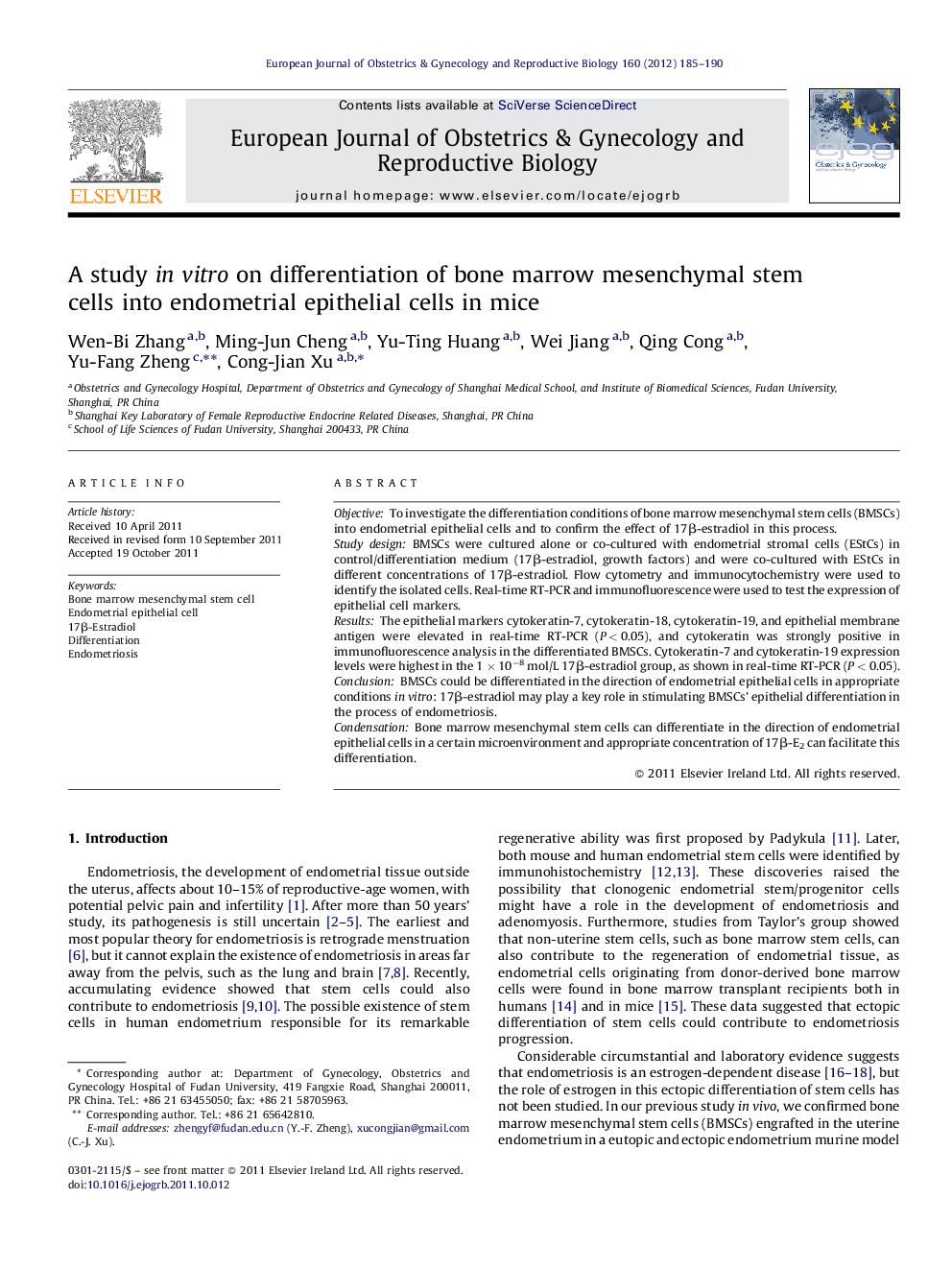| Article ID | Journal | Published Year | Pages | File Type |
|---|---|---|---|---|
| 3920672 | European Journal of Obstetrics & Gynecology and Reproductive Biology | 2012 | 6 Pages |
ObjectiveTo investigate the differentiation conditions of bone marrow mesenchymal stem cells (BMSCs) into endometrial epithelial cells and to confirm the effect of 17β-estradiol in this process.Study designBMSCs were cultured alone or co-cultured with endometrial stromal cells (EStCs) in control/differentiation medium (17β-estradiol, growth factors) and were co-cultured with EStCs in different concentrations of 17β-estradiol. Flow cytometry and immunocytochemistry were used to identify the isolated cells. Real-time RT-PCR and immunofluorescence were used to test the expression of epithelial cell markers.ResultsThe epithelial markers cytokeratin-7, cytokeratin-18, cytokeratin-19, and epithelial membrane antigen were elevated in real-time RT-PCR (P < 0.05), and cytokeratin was strongly positive in immunofluorescence analysis in the differentiated BMSCs. Cytokeratin-7 and cytokeratin-19 expression levels were highest in the 1 × 10−8 mol/L 17β-estradiol group, as shown in real-time RT-PCR (P < 0.05).ConclusionBMSCs could be differentiated in the direction of endometrial epithelial cells in appropriate conditions in vitro: 17β-estradiol may play a key role in stimulating BMSCs’ epithelial differentiation in the process of endometriosis.CondensationBone marrow mesenchymal stem cells can differentiate in the direction of endometrial epithelial cells in a certain microenvironment and appropriate concentration of 17β-E2 can facilitate this differentiation.
